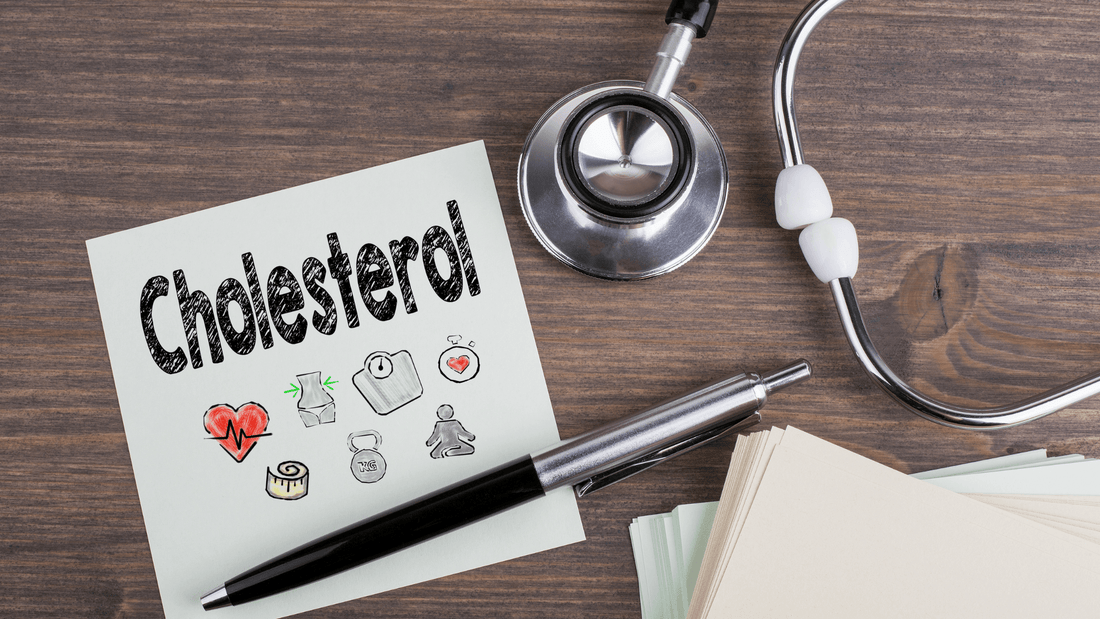
5 best ways to lower your cholesterol
Naturally YoursShare

You may wonder what’s new about ways to lower your cholesterol?
I usually advise my clients to understand the basics and plan accordingly with medical-professional guidance when it comes to the term “cholesterol”.
Because I often hear people saying – I use only ‘cholesterol-free oil’ and can be assured of good health. It’s an advert gimmick. The fact is “dietary cholesterol” comes from animal foods and not from the plant sources. Hence, all cooking oils are plant-based sources that have fat and no cholesterol.
Before, getting into this, you need to be aware of – “blood cholesterol.”
The liver produces the required cholesterol the body needs, and also delivers fat to cells throughout the body. Here, LDL (low-density lipoprotein) acts as a carrier of cholesterol wherever it is required.
The liver also releases high-density lipoprotein (HDL), which carries unused cholesterol back to the liver. This process is called reverse cholesterol transport and protects against clogged arteries and other heart diseases.
When it comes to cholesterol, remember the following thumb rule;
- Check your cholesterol levels; key to assess your risk.
- Change your diet and lifestyle to help improve your levels.
- Control your cholesterol, consult your dietitian/doctor if required.
This article also reviews 5 natural ways to increase the “good” HDL cholesterol and lower the “bad” LDL cholesterol.
Let’s Understand Cholesterol:

Cholesterol is a waxy, fat-like substance found in the cells of your body. We need some cholesterol to make hormones, vitamin D and substances that help you digest foods. Your body makes all the cholesterol it needs which takes place in the liver and some from the food we eat.
Your total cholesterol level is the overall amount of cholesterol found in your blood. It consists of:
- Low-density lipoproteins (LDL)
- High-density lipoproteins (HDL)
- Triglycerides
LDL is also called “bad” cholesterol because it blocks your blood vessels and increases your risk for heart disease. HDL is considered “good” cholesterol because it helps to protect you from heart disease.
Remember: Cholesterol level through diet should not exceed 300mg; Desirable range for HDL - >55 mg/d; LDL - < 130 mg/d; and triglycerides - < 50 – 150 mg/d.
Simple tips for healthy cholesterol management

1. Nourishing Facts
- Reduce saturated fats: Saturated fats, found primarily in red meat and full-fat dairy products, raise your total cholesterol. Replace your usage of butter and cheese with heart healthy oils.
- Eliminate trans fats: Trans fats, sometimes listed on food labels as hydrogenated oil or partially hydrogenated oil, are often used in margarines and store-bought cookies, crackers and cakes. Trans fats raise overall cholesterol levels.
- Consume essential fatty acids: MUFA, Omega-3 and omega-6 fatty acids (PUFA) are good fats which benefits in reducing blood pressure & its sources include salmon, mackerel, walnuts and flaxseeds.
- Increase soluble fiber: Soluble fiber can reduce the absorption of cholesterol into your bloodstream and also nourishes healthy probiotic gut bacteria and removes cholesterol from the body, reducing LDL and VLDL. Good sources include beans, peas, lentils, whole fruits, psyllium husk and whole grains.
Remember: Focus on both quality and quantity; Keep check on your fat intake – 3tsp or 1 tbsp per day recommended.
2. Get Moving:
If you haven’t been active, start slowly even 10-minute activity is enough to begin with (brisk walking, cycling, playing favorite sport, jogging) which motivates to exercise.
Remember: Exercise improves cholesterol and promotes heart health. The longer and more intense the exercise, the greater the benefit.
3. Scale Back:
Do you weigh according to your height? Overweight/obesity also contributes to high cholesterol. Small changes add up. Following the right food choices with proper fitness regime is more important in reducing the cholesterol levels.
Therefore, meal plans are customized depending on your eating habits, preferences and so on. Consult a dietitian to explore tailor-made meal plan for you!
Remember: Weight loss reduces total cholesterol, in part by decreasing the creation of new cholesterol in the liver.
4. Kick the weed:
Quitting smoking improves your HDL cholesterol level. Within 20 minutes of quitting, your blood pressure and heart rate recover from the cigarette-induced spike.
Within three months of quitting, your blood circulation and lung function begin to improve. Hence, imagine the benefits of quitting smoking for lifetime.
Remember: Smoking tends to increase bad cholesterol (LDL), decrease “good” HDL and hinder the body’s ability to send cholesterol back to the liver to be stored or broken down.
5. Break the habit:
Excessive alcohol consumption can lead to health problems such as high blood pressure, heart failure and strokes. It also increases both cholesterol and triglyceride levels.
So, the effect on your heart health, really depends on how often and how much you drink.
The recommended limit is two drinks daily for men and one for women. How safe it is for you to drink depends on many factors, which you should discuss with your Doctor/Dietitian.
Remember: Quantity of alcohol determines whether its beneficial or harmful for your health.
Fatty Glimpse!
- Cholesterol has important functions in the body, but can cause clogged arteries and heart disease when it gets out of control.
- If your cholesterol levels go beyond limit, lifestyle interventions are the first line of treatment.
- Consult a qualified dietitian to know the type and amount of fat recommended for you to use.
- Moderation is key!
ABOUT THE AUTHOR

Indu Vaishnavi R, Dietician
